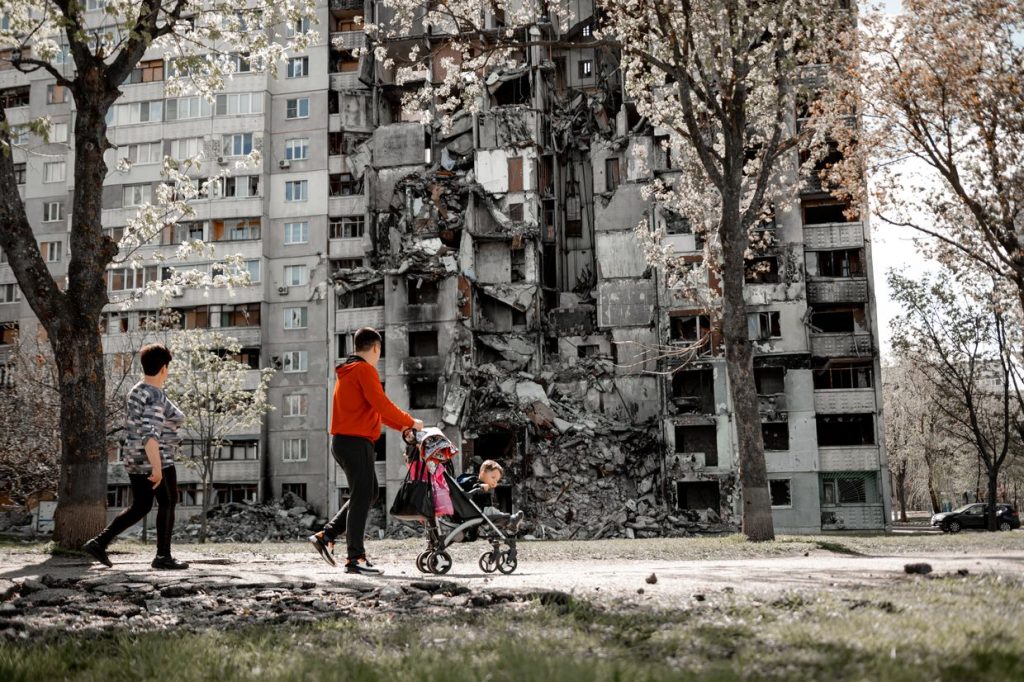The sound of air raid sirens has become a common occurrence in Ukraine since the start of the Russian full-scale war over two years ago. More than 40,000 air raid sirens have been heard across the country, signaling potential attacks. Despite the threat these sirens represent, many Ukrainians, even in cities like Kharkiv, Odesa, and Kramatorsk, often choose not to seek shelter. Factors such as the time of day, location, and personal circumstances can influence this decision, with some people adopting a sense of fatalism due to the ongoing war and the constant threat of death.
In cities like Kharkiv, which is located near the Russian border, air raid sirens can sound multiple times a day and last for hours at a time. The city has faced repeated attacks over the past two and a half years, leading to a normalization of the sound of the sirens and the threat of attacks. Despite the increase in attacks, daily life in Kharkiv continues with shops open, public transport running, and people generally not reacting strongly to the sirens. This acceptance of the harsh reality of living in a warzone is reflected in the behavior and attitudes of the residents.
In Odesa, a city targeted by Russian forces, the constant threat of attacks has led to a mixed response among residents when the air raid sirens sound. Some people seek shelter immediately, especially if there has been recent destruction in the area, while others choose to stay in their homes and avoid windows. The city has been the target of various types of attacks, including missile strikes that have damaged historic landmarks and resulted in casualties. The mental toll of living under constant threat has affected the mental health of some locals in Odesa.
In Kramatorsk, a city in eastern Ukraine near the front line with Russia-controlled territories, the sound of war has become a part of daily life since 2014. The city has frequently been targeted by Russian forces, but residents have grown accustomed to the danger and often do not seek shelter during air raid sirens. The proximity to the front line means that missiles rarely target the city directly, leading to a sense of resignation and acceptance among the residents. The normalization of the threat of attacks has also impacted the daily routines and attitudes of the people in Kramatorsk.
Despite the constant threat of attacks and the need to make split-second decisions about seeking shelter, many Ukrainians have found ways to adapt and cope with the harsh reality of living in a warzone. Psychologists and therapists in cities like Odesa offer support to residents dealing with the mental toll of the war, while business owners like Kateryna Seledtsova in Kramatorsk have found ways to continue their daily routines in the face of danger. The resilience and adaptability of Ukrainians in the face of adversity are evident in their daily actions and decisions during times of conflict.
The decision to seek shelter during an air raid siren in Ukraine is influenced by a variety of factors, including personal experiences, the frequency of attacks, and the proximity to potential targets. While some residents choose to take precautions and seek safety, others adhere to a sense of fatalism or resignation, accepting the risks of staying put. The normalization of war sounds and the constant threat of attacks have reshaped daily life in Ukrainian cities, forcing individuals to navigate a complex landscape of danger and uncertainty. Despite the challenges they face, many Ukrainians demonstrate a remarkable resilience and courage in the face of ongoing conflict.


